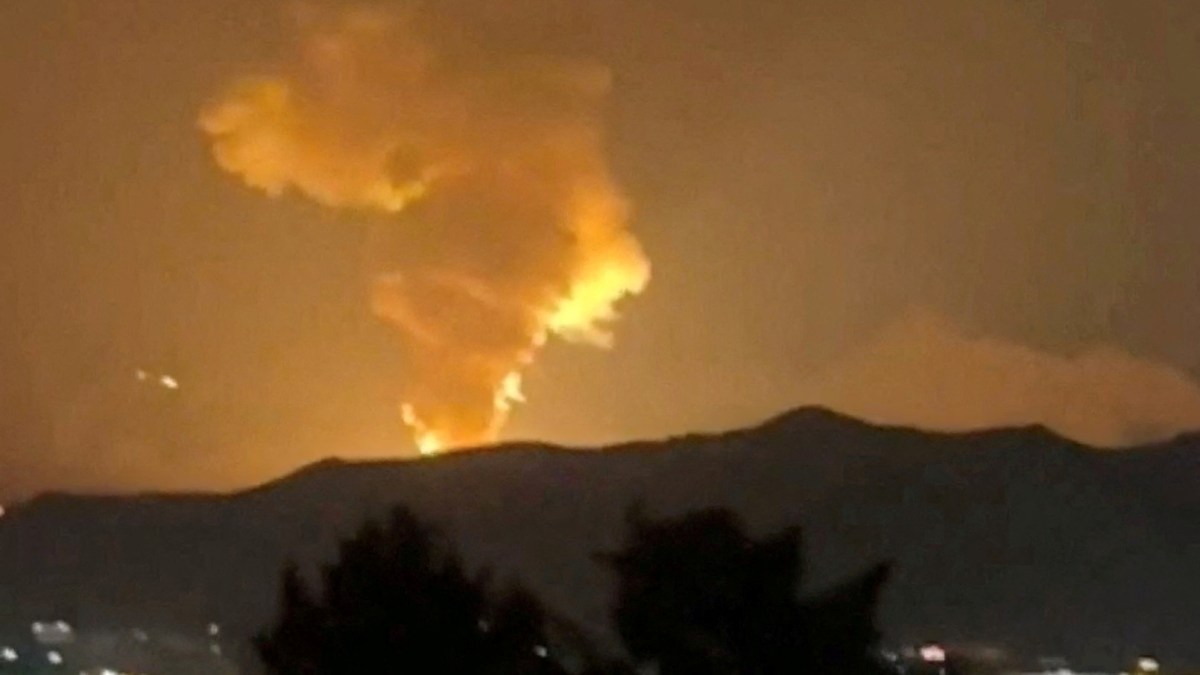One of the most significant cross-border strikes in recent memory of the region has already been launched as a result of Israel’s ongoing military assault on Iran. It included well-known assassinations and sophisticated cyberattacks, far more than a focused operation against missile silos or nuclear facilities. Major General Mohammad Bagheri, Hossein Salami, the leader of Iran’s Islamic Revolutionary Guard Corps (IRGC), and Amir Ali Hajizadeh, the head of its Aerospace Force, are just a few of the most notable developments so far. Since Iran’s military leadership suffered the most severe blow to its military since the 1980-1988 conflict with Iraq, with these killings being the most recent example. The assault is the expression of a political doctrine that has been developed for a long time. However, beneath the surface, it is more than just a military maneuver.
The Islamic Republic’s destabilization and eventual collapse are now more apparent than ever as Israeli officials have publicly stated that the operation was a preemptive action to stop Iran from acquiring nuclear weapons. Israeli and some American strategists have argued for years that regime change is the only real way to end Iran’s nuclear ambitions, sometimes in secret and occasionally overtly. Through psychological, political, and social pressure inside Iran, the current campaign in line with this long-held goal.
According to recent research, the operation was intended to start an internal uprising. The playbook is well-known for those who have witnessed previous regime-change initiatives like the assassination of senior military figures, psychological warfare, disinformation campaigns, and symbolic institutional targeting. Apparently, Israeli-backed cyberattacks and precision strikes have reportedly impacted government buildings and ministries in Tehran, temporarily stumbling across the Islamic Republic’s communications infrastructure, including national television broadcasts.
This is the resonant of Israeli political rhetoric. Officials have acknowledged in closed briefings and selected media interviews that the deeply fortified underground nuclear facilities, some of which are reportedly buried more than 500 meters (1, 640 feet) beneath the Zagros and Alborz mountains, cannot be completely destroyed without the full United States’ support. The GBU57 “Massive Ordnance Penetrator” bombs, which are only available from American strategic bombers, would be used specifically for the operation. Israeli leaders appear to have come to the conclusion that halting Iran’s nuclear program is impossible without a change in the government in the absence of these capabilities.
Israel’s concurrent military and political efforts take on new dimensions as a result of this situation. Israeli propaganda against the Iranian people increased in the wake of the attacks, portraying the Iranian people as the main oppressors rather than the IRGC. With phrases like “This is not Iran’s war,” the message sought to break up the Islamic Republic and the Iranian nation. The regime’s war is underway. Iranian opposition figures from abroad echoed these claims, calling for regime change and supporting the strikes Reza Pahlavi, the eldest son of the last shah of Iran.
However, it is possible that the strategy was flawed. The attacks appear to have consolidated public opinion across political lines rather than igniting a nationwide uprising or fracturing it. What they perceive as a foreign invasion of Iranian sovereignty has caused many Iranians to express anger, including long-standing critics of the regime. A deeply ingrained defensive reflex has resurfaced as a result of the collective memory of external intervention, which dates from the 1953 coup led by the CIA to the Iran-Iraq War.
There has been a discernible reluctance to align with foreign military intervention, even among activists from the “Woman, Life, Freedom” movement, which sparked nationwide protests after Mahsa Amini’s death in 2022 was taken into custody. A sense of compassion and solidarity momentarily replaced the need for regime change as images of bombed-out buildings and fallen Iranian soldiers appeared. The focus of many people’s discussions has changed to national defense rather than political reform.
Notably, several prominent individuals and former Islamic Republic opponents criticized the Israeli attacks and expressed support for Iran. Rejecting cooperation with any foreign assault, football legend Ali Daei said, “I prefer to die rather than be a traitor.” Former political prisoner and former judge Mohsen Borhani wrote, “I kiss the hands of all defenders of the homeland,” referring to the IRGC and other armed forces.
What started out as a logical attack on military installations may have had the opposite effect. Israel’s actions risk reinforcing its position of authority by bringing about national unity and stifling dissent, rather than weakening it. The failure of an attempt to engineer a revolution from the outside could have a negative impact.
If Israel’s ultimate goal was to suffocate a regime, it may have underappreciated Iran’s political system’s historical resilience and the importance of national trauma as a catalyst. Iran’s social fabric does not appear to be fraying as bombs fall and generals die. It might be putting itself back together instead.
Source: Aljazeera

Leave a Reply